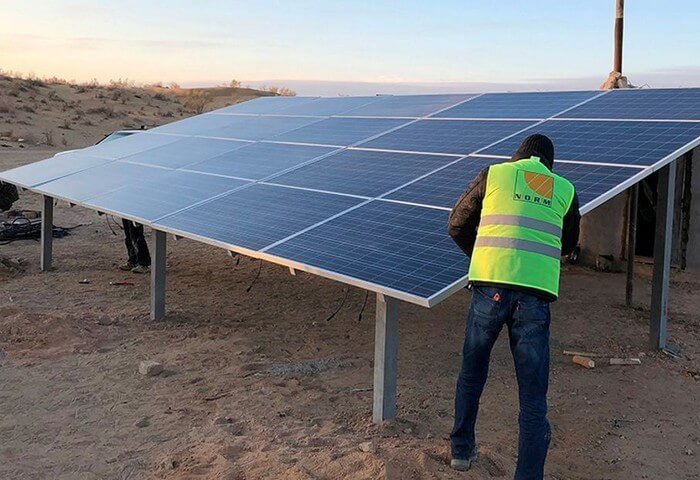
Turkmen company Täç hil, a producer of personal hygiene and cleaning products in the country, is investing in the installation of solar panels and batteries on the roof of its manufacturing plant.
The company plans to install solar panels with a capacity of 12 kWh and battery storage of 5 kWh on the factory roof, as reported by the Union of Industrialists and Entrepreneurs of Turkmenistan on Friday.
According to the report, this initiative will enable Täç hil to partially transition to renewable energy sources, reduce the load on the power grid, and minimize its environmental impact.
The European Bank for Reconstruction and Development (EBRD) is providing advisory services to Täç hil through the ESG program. The bank's experts view Täç hil as an example of entrepreneurs in Central Asia striving for sustainable development.
Täç hil incorporates cutting-edge technologies and high-quality raw materials into its production. With EBRD support, the company implements a quality management system and aligns with UN Sustainable Development Goals.
Established in 2006, Täç hil currently manufactures various types of polyethylene bags for industrial goods, agricultural products, food packaging, and waste disposal. The company also offers mint-scented garbage bags with or without drawstrings. Täç hil produces wet wipes, dishwashing products, liquid and foam soap, gels, liquid antibacterial agents, air fresheners, glass cleaning products, perfumes, and liquid laundry detergents.
